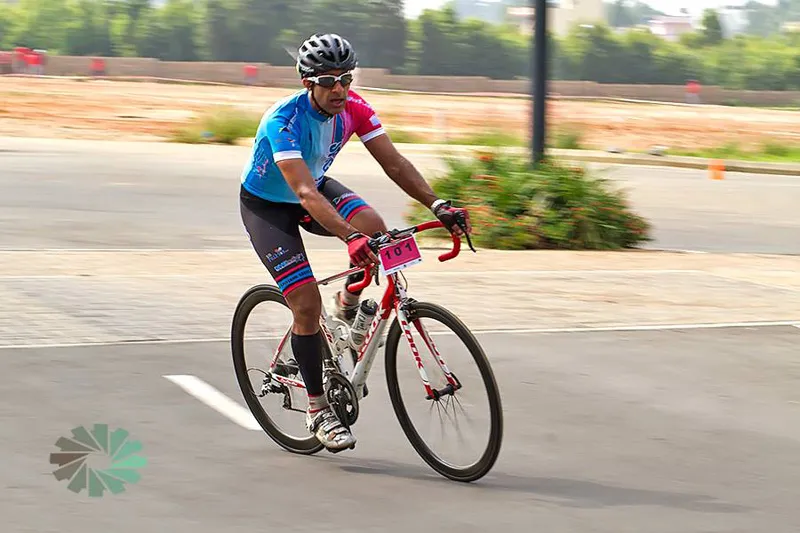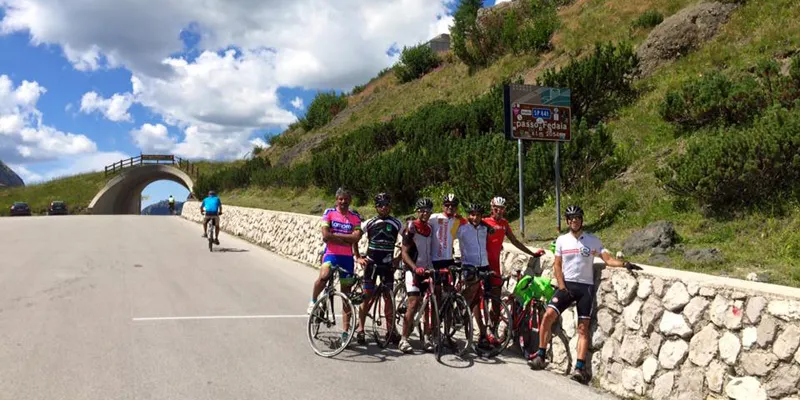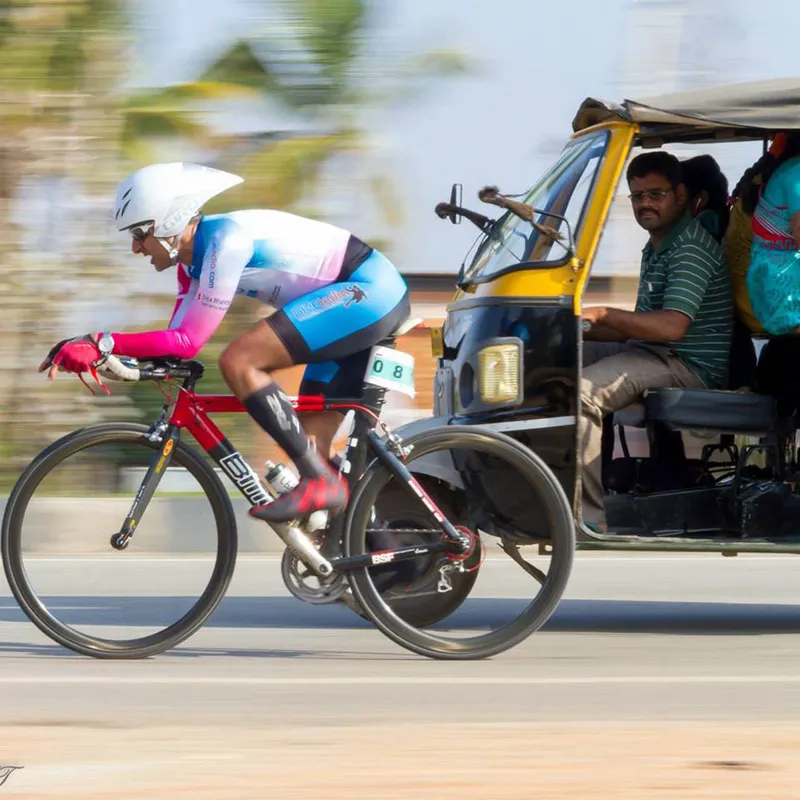This neurosurgeon is cycle racing to raise funds for people with back injury
He is literally giving back to society. Dr Arvind Bhateja, one of the top neurosurgeons in the country, took to cycle racing as a stress-buster and to get into shape. But this sport not only brought order to his life and made him leaner, it is now helping people with severe back injuries go through surgery absolutely free of cost.

Dr Arvind recently conducted an eight-hour marathon surgery on a benign tumour and gave a new lease of life to a patient without charging anything.
Serving as the Medical Director, Honorary Trustee, and the Chief neurosurgeon and spine surgeon at Sita Bhateja Speciality Hospital in Bengaluru, Dr Arvind seems to have made philanthropy his life’s mission. He follows the Robin Hood philosophy, where the hospital subsidises for charitable causes.
“At our hospital, we do not charge patients who cannot afford to pay for the surgery. However, there are certain other costs like that of medicines and implants. Through my cycling campaign, ‘Giving Back’, I am raising money for patients who require a spine surgery and to cover these costs,” Dr Arvind says.
There are only 1,500 neurosurgeons in India with 250 being enrolled every year. At this rate, by 2030, there will be only 5,000 neurosurgeons, and according to the Neurological Surgeons Society of India (NSSI), this number may not be enough.
Japan already has 6,000 neurosurgeons while a country like Turkey has 1,000 neurosurgeons. The ideal ratio in a developed country is one neurosurgeon per 2.5 lakh people. While in India, the ratio is one per 25 lakh to 30 lakh people.
Going by this estimate, Dr Arvind belongs to a rare species. In the past eight years alone (since he came to Sita Bhateja Hospital), he has close to 5000 neurosurgeries and spine surgeries under his scalpel.
In a freewheeling chat with YourStory, he talks about how his decision to give back to society is enriching his life.
Giving is a cycle, it comes back to you
After completing stints at various hospitals like Nimhans and Narayana Hrudayalaya, where he set up the neurosurgery department, Dr Arvind decided to devote his time and skills at the Sita Bhateja Hospital, named after his mother who is a doctor herself. While the neurosurgery department was being set up at his hospital, Dr Arvind came across an article that talked about the benefits of long-distance running. “But in six weeks I managed to get a knee injury and doctors advised me not to strain my knee. Around that time, a friend showed me his cycle and I decided to try cycling,” he says.
Related read: Why are wealthy Indians stingy while rich Americans give generously? Azim Premji has the answer
Initially, he would cycle to the hospital from home, but slowly he became an active member of cycling groups in the city. “I used to be a portly 90 kg. I lost tons of weight. In 2009, I did the Tour of the Nilgiris. In 2011, I completed the half Iron Man triathlon,” he says.
He recently participated in a biking trip at Hawaii, called 'Race to the Sun', which starts at sea-level and ends 10,000 feet high at a dormant volcano on a mountain called Haleakala. He calls it one of his most challenging climbs.

Why decision-making is crucial
According to Dr Arvind, it is usually the surgeries that go wrong that leave a lasting impression.
He quotes Henry Marsh, Britain’s foremost neurosurgeons, “All surgeons carry a small cemetery inside them,” and says this is very true for a neurosurgeon.
“There is no way a neurosurgeon has a clean slate,” he adds, giving me an incredible insight into the perils of his vocation. “It takes guts and refinement to be a neurosurgeon. There is always that element of chance that the patient and the doctor take every time they enter the OT,” he adds.
Recounting his first surgery, he says it went bad. “I was ready to give up the next day. All the surgeries that go wrong stay with you, you never forget them.”
Being a neurosurgeon gives Dr Arvind a certain kind of stoicism that I guess comes with the territory.
“The most important lesson I have learnt as a surgeon is decision making. Learning how to perform a surgery is good. But what is more important is to decide whether to go in for a surgery or not,” he says.
According to him, when he was at Nimhans, all surgeons had to present their case to a panel of seniors and experts on why they had decided to go ahead with the surgery. “One had to be hundred percent sure on why they were taking a particular call,” and this, he adds, prepares one to make decisions and stick by them.
A disciplined approach
As a young boy who mostly grew up in the hospital, Dr Arvind was left alone by his busy parents. “I was the youngest, and at that time, both my mother and father were busy with the hospital. My mother as a gynecologist and my father as the administrator of the hospital,” recalls Dr Arvind. “I would play galli cricket and football with the neighbourhood boys through the summer holidays.”
Related read: 10 rules startup founders must remember about discipline
However, he learned to be disciplined only after a gruelling NCC training in high school. “I was physically a weak child, and until then was pretty much easy going. The NCC training was tough and rigorous and I was loaded with the extra pressure to bring the school the best cadet medal at the all-India competition during Republic Day,” he says.

He slowly started valuing the early morning training and the need to be consistent in his performance. Later, this approach helped him bag the best outgoing student title at Ramaiah Medical College from where he completed his MBBS degree.
Hard work and discipline became his most important tools later too when he started working at KEM Hospital in Mumbai, and when he decided to become a neurosurgeon.
“Neurosurgeons are weird people. They tend to be introspective and are not outgoing,” he says, adding, “It is because of the disease we deal with.” And though he may have unwittingly described himself, what Dr Arvind perhaps does not add is that by steering his life’s mission towards altruism he may have found the road to freedom.
Related read: This 26-year-old doctor turned serial entrepreneur and investor has invested in 26 startups







